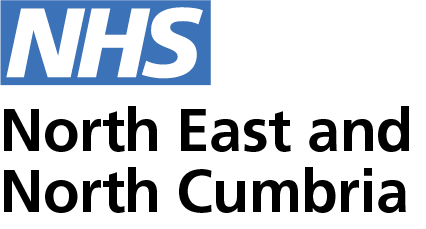New NHS plan to use medicines better, waste less, and help people stay healthy for longer
The region's NHS is launching a new plan aimed at transforming healthcare and improving outcomes for patients.
The North East and North Cumbria Integrated Care Board (ICB) has unveiled its new medicines strategy, to help improve healthcare, cut down on unnecessary prescriptions, and make the best use of NHS resources.
The plan is a key part of the ICBs ten-year vision to tackle the region’s biggest health problems, reduce health inequalities, and ensure high-quality care for everyone.
Every year, over £1 billion is spent on medicines in the North East and North Cumbria with around 7.5 million prescriptions issued each month, making medicines the NHS's biggest investment in people’s healthcare across the region.
The 'long-term plan for better health' aims to make sure medicines are used in the best way to help people stay healthy and avoid illness, focusing on giving patients a bigger say in their treatment, using fewer antibiotics and painkillers when they aren't needed, and helping people understand their medicines better so they can stay well for longer.
The plan also encourages doctors, pharmacists, and hospitals to work more closely together to give better care.
ICB director of medicines, Professor Ewan Maule, said: "The North East and North Cumbria faces serious challenges, including higher rates of poor health than many other parts of the country.
“Medicines play a crucial role in helping people stay healthier for longer and, in many cases, allow them to live a better life. They are constantly evolving, with new treatments, such as weight loss drugs, being developed all the time, helping to treat many health problems that we couldn't in the past.
"However, many people are living with long-term illnesses, with some taking several different medicines each day - which they may no longer need. This new strategy is designed to make sure patients get the right medicines at the right time, reduce waste, and improve overall patient care."
The new strategy outlines several key areas to improve the use of medicines, including:
Reducing unnecessary prescriptions - up to ten percent of prescribed medication currently issued are not actually needed. Early results from a new ICB medicines waste campaign, which encourages patients to order only what they need from their repeat prescriptions, have already shown a slight reduction in unnecessary prescribing. This initiative has the potential to save over £20 million each year, with funds being redirected into essential health services to enhance patient care.
Reducing the long-term use of pain medication - prolonged use of pain medication (opioids) can often cause more harm. Across the region, approximately 120,000 people use opioids, with nearly 97,000 taking them for over six months.
Overuse of antibiotics - excessive or inappropriate use of antibiotics can lead to antibiotic resistance, making infections harder to treat in the future. Healthcare teams will work closely with both doctors and patients to ensure antibiotics are prescribed only when necessary.
Reviewing antidepressant use - more than ten percent of people across the region are currently taking antidepressants long-term, sometimes without regular reviews. The new strategy encourages greater use of non-medical treatments, including talking therapies and lifestyle support, alongside regular checks to make sure people get the care they need.
The plan also highlights the need to improve care for people with heart disease, diabetes, and breathing conditions including asthma and chronic obstructive pulmonary disease (COPD).
"These are some of the biggest health issues in our region, yet thousands of people aren’t getting the right treatments to manage them properly, said Professor Maule.
"By focusing on better care and prevention, we hope to reduce hospital visits and help people stay well for longer.
"Most importantly, the plan puts patients at the centre of decisions about their care. People will be supported to understand their medicines, know why they’re taking them, and feel confident in making choices about their treatment. By giving patients a stronger voice, we hope to build trust and deliver more personalised care.
"Our medicines strategy is a major step forward in our long-term plan for better health and by focusing on prevention, fair access, and safer, more effective use of medicines, we believe we can improve care for thousands of people, reduce pressure on our services, and make sure every pound spent brings the best possible benefit.
"There’s still a long way to go – but with this new strategy in place, the North East and North Cumbria is taking action to build a healthier future for everyone."
For more information about the medicines waste campaign and the ICB medicines strategy, visit North East and North Cumbria ICB Medicines Strategy.
